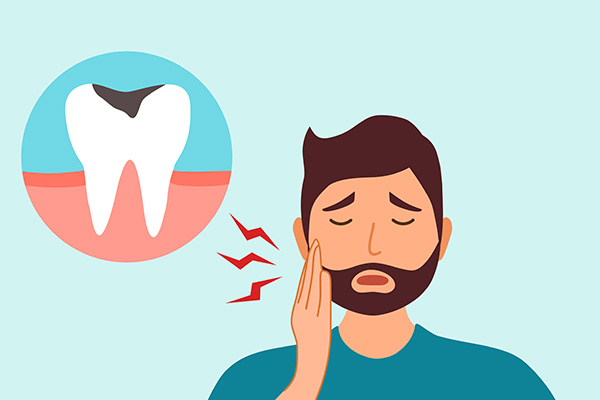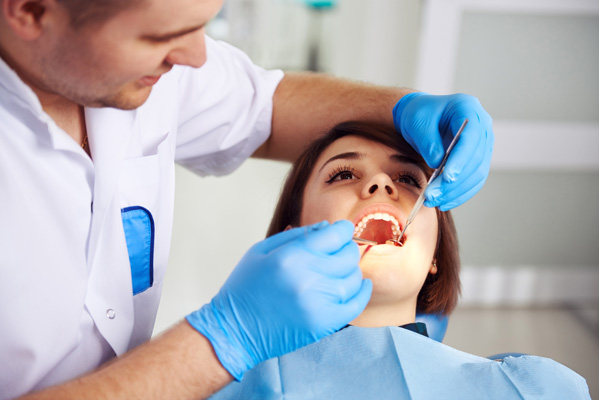 General dentistry helps you to deal with issues like toothaches. Toothaches are your brain’s way of telling you that there is something wrong with a tooth. It can be caused by things like tooth decay, damage to a tooth’s structures, or infection. A mild toothache that goes away on its own is often not a cause for concern, but one that keeps coming back and intensifying is typically a sign that general dentistry treatments are needed.
General dentistry helps you to deal with issues like toothaches. Toothaches are your brain’s way of telling you that there is something wrong with a tooth. It can be caused by things like tooth decay, damage to a tooth’s structures, or infection. A mild toothache that goes away on its own is often not a cause for concern, but one that keeps coming back and intensifying is typically a sign that general dentistry treatments are needed.
How general dentistry fixes toothaches
A toothache is a sign that something is wrong with a tooth, and the only permanent solution is figuring out its root cause. Painkillers or over-the-counter toothache products only help manage the pain. Left untreated, the problem will worsen until the pain becomes so severe, a patient must head to the nearest dentist.
Treatment for a toothache starts with the dentist diagnosing the root cause of the patient’s problem. A visual examination might be performed, and the dentist might touch parts of the affected tooth to see how the patient reacts. Diagnostics like X-rays can be used to get a clearer picture of what is going on inside a tooth.
Once the cause of the patient’s problem has been identified, appropriate treatments can be carried out. Treatments that a dentist might recommend to help address toothaches include the following:
1. Fillings
Fillings might be recommended if cavities are causing the patient’s pain. Cavities leave the inner dentin of a tooth exposed to acids, sugars, and bacteria in the mouth, which often leads to toothaches and increased sensitivity.
Filling up a cavity involves administering a shot of a local anesthetic and cleaning out the decayed parts of the tooth. A putty-like filling material is then inserted into the tooth. It forms a barrier that prevents acids in the mouth from getting into the cavity, and it serves as artificial enamel for the sensitive dentin. That is often enough to stop toothaches caused by cavities.
2. Crowns
A crown is often recommended when a tooth has been severely damaged or decayed. The crown covers the tooth's visible part and prevents irritants like acids in the mouth from getting to the tooth. This prevents further damage while restoring the tooth’s function.
3. Tooth Extraction
It is not uncommon for a toothache to be the first sign of an infection. If a toothache is accompanied by swelling and redness around the tooth, it could be an abscessed tooth. An absecessed tooth will often need to be removed. An extraction may also be necessary if the tooth is broken or fractured and the dentist cannot find a way to save the natural tooth.
Put tooth pain behind you
Are you ready to bring your toothache pain to an end? Call or stop by our Johns Creek clinic to set up an appointment with our dentist.
Request an appointment or call Johns Creek Dentistry at 770-623-1427 for an appointment in our Johns Creek office.
Recent Posts
A general dentistry clinic can provide treatments for a knocked-out tooth. This type of dental injury often happens because of a strong impact on the face. It can be from a fight, a vehicular accident, or a sports injury. If you want to know if a general dentistry clinic can restore your dislodged or knocked-out…
General dentistry treatments are available to restore the function and appearance of your teeth, depending on the severity of the tooth damage. The dentist will examine the cracked tooth and design a suitable treatment plan.The following are common treatments in general dentistry for repairing a damaged or fractured tooth:Dental bonding is often done to fix…
General dentistry practitioners know that loose teeth in youngsters are common and cause little worry since the problem is with the "baby teeth." If you have a loose tooth or one of your children has a loose adult tooth, you may need to visit the general dentistry office to save it. Continue reading to discover…


